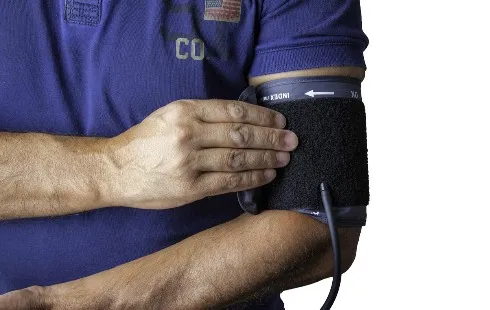
New to Germany? Avoid These Common Health Insurance Mistakes
Section: Health Insurance
In the golden age of printed newspapers, the headline was designed to capture the reader's attention and promise something of interest; a world of intellectual wealth and insightful commentary was only a glance away. Today, that age has crumpled, withered and passed. Yet, the hallowed headline is as much important, if not more so, today than it was during the print years. The answer to why this is so, lies in the capacity of the Internet to reduce attention span. Many studies have shown that young people's ability to concentrate has been greatly diminished by the vast amount of data they are faced with and their ease of access to it.
The 'quick fix' generation do not idle or waste time reading the details. Naturally, as the ability to concentrate suffers, people find themselves habitually scanning headlines on their electronic device or computer, before choosing which article, if any, to digest. Most of those headlines they scan, are ignored. Yet the act of scanning the headlines does in fact still have a subconscious impact, which is more severe than most people realise. You become vaguely aware of the article content through that headline, as is its intention. You may never read the articles, but day in, day out, scanning the headlines subconsciously influences our opinion on matters, which we are not even aware of. Advertising works mostly on this principle. A billboard poster viewed a small number of times is capable of subconsciously influencing your purchasing choices and you won't even be aware of it. The same with product placements in movies and TV shows.
Do you feel comfortable being influenced on your buying habits? What about your political views or opinions on a certain topic - are you happy with having those opinions subconsciously influenced? Printed newspapers were eager to influence, but it was clear and easy to spot their overt manipulation. Can you say the same for how online publications aim to influence and/or control you?
Let us look at an example. The recent advertising fiasco from Gillette, who commissioned a feminist to create an incredibly sexist and racist advert offending men, was clearly a bad move. The subsequent backlash and boycott is proving this, but how did they think they could get away with patronising and offending their entire customer base? To explain, with an example, let us look at one of the world's biggest news websites, the BBC News. Let us take today's front page of the UK news coverage section. We could do this on any day, but let us focus on today's news as the same principle applies at any time. Here are a sample of headlines relating to crimes on just that one page:
Three men jailed over shop blast murders
How father's control turned into murder
Brothel owner exposed by BBC is jailed
Parents of dead toddler jailed for neglect
'I forgive the man who upskirted me' (video)
Boxer, 21, killed in shooting at pub
Most people who viewed the UK front page news, would not have read these articles. However, they most likely would have scanned over the headlines and subconsciously digested the meaning. What gender are the perpetrators of the crimes, as suggested by the headlines, and who are the victims? When the crime was committed by men, it was explicitly stated so. Yet when two lesbians killed a child ('Parents of dead toddler jailed for neglect'), the headline is worded to hide that fact. The boxer is a male victim, but his sex is again not stated explicitly. Whereas the female victim of a voyeur has her photo shown while also stating the perpetrator was male. The jailed brothel owner, is of course female, as you can tell without reading the article by the fact that they hid the sex of the offender from the headline. This tactic is a common one in mainstream media publications, i.e. using headlines to push a theme or political agenda. In recent years, the primary theme is that all crime is perpetrated by men, and all victims are female. Scanning the headlines, without reading the articles, would subconsciously reinforce that, even though it is clearly wrong. News publications are consciously designing headlines to subconsciously infer fear and loathing of men, while simultaneously supporting empathy for women as victims of crime.
To protect themselves, publications will often throw in a small number of balanced headlines to defend themselves from criticism. However, this is nothing more than an insurance policy to prevent the otherwise nuanced anti-male propaganda from becoming too obvious. To combat this tactic, year-long research has being conducted on over 20 of the world's largest online English-language news portals, to determine the level of anti-male sexism they exhibit in their headlines. This will be published in due course and will be used to pursue these publications via anti-sexism legislation. The BBC in particular is paid for with public funds, and has a charter stating it is against sexism in all its forms, so this research will be especially useful in helping to secure an end to its biased anti-male reporting.
Headline writing is both an art and a science. In the digital age, it is also an incredibly effective propaganda tool to push a hidden and hard-to-prove ideological viewpoint, such as 'all men are evil', 'masculinity is toxic', or 'women are the only victims of violence'.
Now you know why Gillette thought they could get away with their brazen toxic masculinity advert; they assumed the mainstream media had paved the way for them. They were just a lot more obvious about their one-off man-bashing advert than the mainstream media is about their daily efforts to denigrate men and masculinity. So, now that the Gillette boycott is underway and both women and men are astounded at the blatant sexism and racism on display by that company, how long will it take the same people to boycott the BBC and other publications which have made the atmosphere in many Western countries so incredibly toxic for men? We are at the point where suicide is the number one cause of death of men under 45 in the UK. Is there a connection with the way the BBC is treating men? Who knows for sure, but it certainly is contributing to the alienation which men are facing in a society which is openly hostile to them.
Next time you read a news website, check the headlines and pay attention to the deliberate underlying miscommunication imparted by those carefully crafted one-liners, and ask yourself why these companies are engaging in pushing such a man-hating narrative. For a clue as to their motivation, read this article on how women are manipulated by the media.

Section: Health Insurance

Section: Health

Section: News

Section: Arts

Section: Arts

Section: Politics

Section: Politics

Section: News

Section: Politics

Section: Health Insurance
Health Insurance in Germany is compulsory and sometimes complicated, not to mention expensive. As an expat, you are required to navigate this landscape within weeks of arriving, so check our FAQ on PKV. For our guide on resources and access to agents who can give you a competitive quote, try our PKV Cost comparison tool.
Germany is famous for its medical expertise and extensive number of hospitals and clinics. See this comprehensive directory of hospitals and clinics across the country, complete with links to their websites, addresses, contact info, and specializations/services.
Offene Wunde is a documentary theater piece about the attack at the Olympia Einkaufszentrum (OEZ) by Tunay Önder and Christine Umpfenbach. On July 22, 2016, a perpetrator motivated by racism killed nine young people from Munich: Armela, Can, Dijamant, Guiliano, Hüseyin, Roberto, Sabine, Selçuk,...



No comments yet. Be the first to comment!